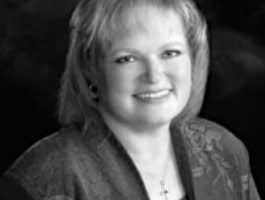
Understanding Hospice Care
What is hospice? Today on the broadcast, Dennis Rainey talks to hospice nurse, Deborah Howard, about the benefits of hospice care.
Show Notes
About the Host
About the Guest
-
What is hospice? Today on the broadcast, Dennis Rainey talks to hospice nurse, Deborah Howard, about the benefits of hospice care.
-
Dave and Ann Wilson
Dave and Ann Wilson are hosts of FamilyLife Today®, FamilyLife’s nationally-syndicated radio program. Dave and Ann have been married for more than 38 years and have spent the last 33 teaching and mentoring couples and parents across the country. They have been featured speakers at FamilyLife’s Weekend to Remember® marriage getaway since 1993 and have also hosted their own marriage conferences across the country. Cofounders of Kensington Church—a national, multicampus church that hosts more than 14,000 visitors every weekend—the Wilsons are the creative force behind DVD teaching series Rock Your Marriage and The Survival Guide To Parenting, as well as authors of the recently released book Vertical Marriage (Zondervan, 2019). Dave is a graduate of the International School of Theology, where he received a Master of Divinity degree. A Ball State University Hall of Fame quarterback, Dave served the Detroit Lions as chaplain for 33 years. Ann attended the University of Kentucky. She has been active alongside Dave in ministry as a speaker, writer, small-group leader, and mentor to countless wives of professional athletes. The Wilsons live in the Detroit area. They have three grown sons, CJ, Austin, and Cody, three daughters-in-law, and a growing number of grandchildren.
-

Deborah Howard
Deborah Howard, RN, CHPN (Certified Hospice and Palliative Nurse), and her husband, Theron, live near Little Rock, Arkansas, where she divides her time between writing and working as a hospice nurse.
What is hospice?
Bob: Some people are devoting their lives to caring for us as we face the end of our lives here on earth. Here is hospice nurse Deborah Howard.
Deborah: Being a hospice nurse is an extremely rewarding profession. There is not a day that goes by that I don't go home and know, for a fact, that I've made a difference in somebody's life. When I walk into a patient's room, and their eyes just light up because I'm there, that's my reward.
Bob: This is FamilyLife Today for Tuesday, February 22nd. Our host is the president of FamilyLife, Dennis Rainey, and I'm Bob Lepine. We'll hear today how facing death can open people's hearts to considering spiritual life.
And welcome to FamilyLife Today, thanks for joining us on the Tuesday edition. I've been reflecting back this week on the funeral that you and I attended back at the beginning of the summer for our friend, J.T. Walker. You mentioned it earlier this week. J.T. and his wife Enid spoke at our FamilyLife Weekend to Remember conferences, more than 50 of them, over almost a decade period of time.
Dennis: Yes, touched over 25,000 people's lives through those conferences and had over 750 people who received Christ.
Bob: J.T. had an 18-month battle with leukemia. It went into remission, it came back, he was facing chemotherapy again and, all of a sudden, experienced a brain hemorrhage and was gone relatively quickly from the time that hemorrhage occurred.
But I remember the pastor at the funeral pointing to the casket that was before him and saying, "Everyone in this room will someday be part of an event just like this, except you'll be the person that everyone has come to remember." Death is something that all of us will visit. We don't know whether our journey down the path toward death is going to be a quick journey, as it was ultimately for J.T., or whether it's going to be a prolonged journey, as it was for your mom, as we've talked about already this week. But all of us are headed in the same direction.
Dennis: And as we head in that direction, as we move toward the sunset of our lives, we're going to need help. We're going to need someone to walk alongside us in that process, and I mentioned this earlier this week, that when my mom was dying, I really needed some information about death and about dying and what happens to a person. How does their body begin to shut down and what is the process that they go through? And I began to look around for resources to help me, because I hadn't been around anyone. And, of course, I turned to hospice and got some great literature and materials and came back and wanted to inform you, as a listener, in your family, so that when you face this time like Bob was talking about earlier and whether it's you going through the process of dying or your parents or another loved one in your family, you'll know how to go about it.
We found a resource, a brand-new resource, to be able to help you. It's called "Sunsets – Reflections for Life's Final Journey," and it's by Deborah Howard, and Deborah is from here in Little Rock, and she joins us here on FamilyLife Today. Deborah, welcome back.
Deborah: Hello, Dennis, it's nice to be here.
Dennis: You've been a hospice nurse now for almost a decade, and you've written this book. One of the things I've found very helpful as I went through the book was that you had a number of myths that you point out that people believe about hospice. I know this was true of me. I didn't know what the organization provided. I thought it was a national organization, all tightly wound together and had many expressions in different cities across the country.
Bob: Kind of like the American Red Cross – a big national organization with chapters all around?
Dennis: Boy Scouts, Girl Scouts, you know, a national organization. But that turned out to be a myth, because it's not a national organization.
Deborah: No, and you're not alone there, Dennis. There are a lot of people who believe that hospice is all one organization, and they don't recognize the fact that hospices are individual just like schools are individual, hospitals are individual. They have a governing authority over them – the National Hospice Organization – but each hospice is run independently. Some are for profit, some are nonprofit, but each hospice has individual control over their own business.
Bob: So in a metropolitan city of a million people, there may be half a dozen different hospice providers, all with a little different approach, maybe, to how they handle things?
Deborah: That's exactly right.
Bob: Who pays for hospice?
Deborah: Well, hospice is, in most cases, Medicare-funded. There are also other pay sources for hospice. Most insurance companies have a hospice benefit. The Medicaid system pays for hospice.
Dennis: Does the patient pay for hospice?
Deborah: There is a private pay if they are able to do that and they don't have any other pay source like an insurance or Medicare. There are private-pay patients but, basically, we don't turn anyone away. If they don't have a pay source, then those are patients that we see free of charge.
Dennis: And they also provide some – well, like oxygen. My mom was on oxygen for the last six to eight months of her life. That was provided, I believe, by hospice.
Deborah: Right. There are real practical benefits in going with hospice. Hospice provides all the medical equipment that you're going to need, any supplies that you need such as diapers, dressings for dressing changes, any kind of medical supply in the home or in an inpatient facility, either one. And then we also pay for any medications that they need that pertains to their specific diagnosis or pertains to their comfort. That includes medications for pain, medications for nausea, anxiety, agitation, itching – anything that really pertains to the patient's comfort are things that we will supply for them.
Bob: That's the ultimate goal of hospice, isn't it – to provide as comfortable a passage along the path toward death as you can?
Deborah: Right. We've got a saying in hospice that sounds a little hokey, but it's actually very true. It says, "We know that we can't add days to your life, but we can add life to your days." And it's our goal to do that, and by helping them attain a certain level of comfort throughout their illness, we are able to achieve that.
Another myth that I run into a lot is the myth that you have to be on your deathbed before you can qualify for hospice, and that is so untrue.
Dennis: Now, when you say "deathbed," you're saying they are down to your last hours or days of life.
Deborah: Absolutely. There are some people – some doctors, especially – we have problems with because they wait until their patient is actively dying before they recommend them to hospice. That's why it helps to know that the recommend for hospice does not have to come from a doctor. But we have had patients who were traveling, who are well enough that they can garden, who can do – we had one who ran in a marathon. But the one thing that they've got in common – it doesn't matter how well they are in some diagnoses, as long as they have a diagnosis that is considered terminal, and they are not seeking curative medical care.
Bob: Now, let's say you've got somebody who is lucid, he's ambulatory, he feels fine – so what are you going to do? I mean, you come over once a week or once every couple of weeks? He's fine.
Deborah: The most important thing I think we do for those patients who are in the early stages of the death process is providing the medical management that makes sense for their specific case. All of a sudden, they have access to a nurse 24/7; all of a sudden, if they have questions regarding their illness or regarding certain symptoms they might show, all they have to do is pick up the phone and call somebody. It's not like calling a doctor's office and having to wait six hours for the nurse to call you back.
Dennis: That was what really impressed me – is my mom was under hospice care – was that there were nurses like you available to come over to our home whenever we needed them.
Deborah: Right.
Dennis: And at no cost. Again, it was a phenomenal service to our family and to my mom to be able to get an intelligent reading about her respiratory or perhaps her blood pressure or how she was doing, and that's all made available to the person who is under hospice care.
Deborah: You're right. That is a big benefit to them, but there is another benefit, too, and that is that dying is not strictly a physical event. It's a very spiritual event, it's a very emotional event, and by getting in on a case, let's say, six months early, even while you're ambulatory and able to be fairly functional in your life, we're able to start talking to you and helping you come to grips with some of the difficult issues that lie ahead. And a chaplain is assigned to each patient, and they are as visible as the patient needs or as invisible as the patient desires. There are some patients, quite frankly, that refuse that service. They don't want to talk about anything spiritual, and we view that as their right, and we don't push it on them.
I am also there representing Christ to all of these patients, and that's why I view my career as a ministry, because you don't have to say things. You can show them in the way that you touch them, in the way that you smile, in the way that you deal with each patient, you can show Christ to them, and you can make Christ evident to them, and there are times that they will sometimes ask, "What is it that makes you love me like you do?" And that is a perfect opening for me to share Christ with them.
Bob: Do you remember a specific instance where that happened?
Deborah: Yes, I do. I had a patient, he was one of my favorites, actually, and he asked me questions like this – and, Dennis, you'll appreciate this – anybody who loves to witness about Christ would appreciate this. He would say, "How can I know that I am a Christian? How can I know that I am saved? What evidence is there in the Bible that I need to know about?"
Well, those are wonderful, wonderful questions for Christians who love to share, and since I do, I knew that I could not talk to him about these things while I was on duty. So I did make an appointment to come back and share the Scriptures with him later. I went back on my own time at his invitation, and I was able to sit by his bedside and talk to him about the plan of salvation. At the end of that, we prayed together. When I finished the prayer, and I looked up, his eyes were tearful, and he squeezed my hand, and he said, "What is it about me that makes you love me enough to do this for me?" And I told him that it broke my heart to think about the possibility that he would be bound for hell; that I wanted him to not die ignorant but to know the truth about Christ before his death. He was very touched by it.
Dennis: I can't imagine a more teachable time. I mean, seriously, you think of the two thieves on the cross – one wanted to know Christ; the other didn't, and I guess that's a picture of how the human heart can be when it faces death.
We've talked about several myths here about hospice, but there are also some myths about dying, and because families don't have the right information about the process of dying, they can actually cause some problems with their loved one trying to keep them alive longer if they don't have that information. You actually write about a family who was trying to force-feed their father, is that right?
Deborah: Yes – father and husband. I went out to talk to them about hospice. The father had been diagnosed with end-stage heart disease and Alzheimer's. He had reached a point in the disease process where he was not able to swallow anymore, but the family was under the delusion that if Daddy ate, Daddy would get better, and so they were trying their darndest to get Daddy to eat. Many of the times he would choke, he would aspirate on the food or liquid. It was obviously a time when the most humane thing to be done at that point was to withhold food, give him things that he would tolerate if he wanted it, if he asked for it, but to withhold food because he had lost the ability to eat.
During that conversation, when I was telling them about this, the daughter raised up and said, "So you expect me to sit by and let my father starve to death?" And I said, "Yes, if that's what's needed." And she stormed out of the room. I didn't know this, but she was listening in the hallway, though, as I continued teaching, and I told them that judging from their father's condition, he would not be here long enough to starve to death. There would be something else that would take his life, and that would be the end-stage heart disease.
People have to understand that when you're talking about artificial nutrition …
Dennis: Now, you're speaking, at that point, of a stomach PEG?
Deborah: Right. When I say "artificial nutrition," I'm talking about a tube feeding, yes. But many people, when they get to this stage in their life or in their death, they lose all appetite. The first system that shuts down in the body is the digestive system. And then, if you put food, whether it's real food or whether it's artificial nutrition in a gut that's stopped working, it's really like cruel and unusual punishment. There are all kinds of gastric distress that they go through with excess bloating or cramping. Some patients have diarrhea, some have constipation, but none of it is ever for the patient's comfort.
It's a different matter if the patient is hungry and wants to eat, and there is some mechanical reason why they can't, like esophageal cancer or something like that, then it makes sense to put a feeding tube in them, because they still have the desire for food, for nutrition. But one of the ways that God weans us from this world, I think, is that He causes the body to lose its desire for food.
Once I told the family about this, the daughter came back in. She said she had no idea about that. She thought that she was doing good by her father to force him to eat. She didn't realize that by forcing him, he could aspirate, he could choke to death, and then what kind of guilt would she have to live with if that happened? So actually she sat down and, for the rest of the time I was there, she was very open about listening.
And just to tell you the rest of the story, she became one of the caregivers for her father and provided the most excellent care for him, and we did this together. We went through the interventions and things like that together so that she would be in the know. She was very receptive.
Dennis: You know, as my mom went through the process of dying, it was a real learning process for me. One of the things I didn't have a clue about was that hospice provided the business side of the death at the conclusion.
Deborah: Right. Interesting that you would call it that, because that's what I've called it in my book, too. When the patient dies, hospice is invaluable to the family. All they have to do is call the hospice nurse who is on call 24 hours a day. The hospice nurse responds to that call and takes care of all the business part of the death so that the family can pay attention to the things that they need to, which is their own grieving or pay attention to each other.
Bob: And what is the business part? What are you talking about?
Deborah: There's a certain order that the authorities need to be notified in. First of all, we pronounce death when we get there. There are only three bodies of people who can pronounce death, and that is a physician, a coroner, or a hospice RN. And so the first thing I would do is to assess the body and pronounce death, and then you call the authorities. You have to call the police who come out to fill out a report. Then they, in turn, will call the coroner and give them the information. And then once the body is released by the coroner and usually, if hospice is present, they do this over the phone and don't have to come out. Then we can call the funeral home. We talk to the funeral home; we give them directions. We just do everything, and then we stay with the families until after the bodies have been collected and until we know that they're coping and that they're calm and accepting of the situation.
So there's a lot of business that goes on with the death, but we don't think that the family should be saddled with that on top of the grief that they're already experiencing.
Bob: This would seem like it would be a hard profession to be a part of. It's all about death. It would seem like it's depressing, is it not?
Deborah: It would seem like that but, actually, being a hospice nurse is an extremely rewarding profession. There is not a day that goes by that I don't go home and know, for a fact, that I've made a difference in somebody's life. It's a very rewarding experience.
A lot of people think that hospice is all death and dying and gloom and doom; that we should all wear black and be somber. But, you know, hospice nurses are some of the most cheerful people that I know, and people don't become hospice nurses to make a lot of money, because you can make more money in the hospitals or a nice clinic someplace, and they don't go into hospice for fun, because there are times that hospice is not very much fun. But the rewards that a hospice nurse derives from this job are intangible.
It's like when I walk when I walk into a patient's room, and their eyes just light up because I'm there – that's my reward, and that's pretty heady stuff, so I try to tease with my patients, with the families. I try to keep things light, but to let them know that I'm also there for the heavy stuff as well.
Bob: And, along the way, you get to have some meaningful conversations with folks about the realities of life and death; about what the Bible has to say about it as they give you invitation in that. This is a time when people's hearts and minds, both those who are dying and those who are friends and family members, there's a spiritual awareness, an interest, that is there, and you can capitalize on that.
You tell some stories in your book, "Sunsets," about some of those very meaningful interactions you've had with people. We've got copies of the book in our FamilyLife Resource Center and, I have to tell you, I found this a very moving and encouraging book, and one that helped me to, again, think more biblically about the subject of death.
It's called "Sunsets – Reflections on Life's Final Journey," and it's a book that we've got in our FamilyLife Resource Center. If you or your family are in the middle of this journey right now, or if you know someone who is, this would be a book for you to have or to pass on to them, along with a book that our team has put together called, "Encouragement for Broken-Hearted Homes," because the reality is we are often broken-hearted when a friend or a family member is passing on, and this book offers comfort from the Scriptures for those who are grieving.
We've got copies of both books in our FamilyLife Resource Center, and if anyone wanted to order both of those books today, we can send you, at no additional cost, the CDs of our conversation with Deborah Howard or cassettes, if you would prefer. We have those available as well.
Go to our website, which is FamilyLife.com and at the bottom of the screen there is a button you'll see there that says "Go." If you click on that button, it will take you right to the page where you can get more information about any of these resources. You can order online, if you'd like. It's easy to do. Again, the website is FamilyLife.com or if you'd prefer to call, the number is 1-800-FLTODAY, and we've got folks who are available right now to take your call, answer any questions you have about these resources, or have them shipped to you. Again, the toll-free number is 1-800-FLTODAY or get in touch with us by going to our website at FamilyLife.com.
While our focus this week has been on life's final journey toward death, I did see an e-mail from one of our Legacy Partners this week – a family in Hagerstown, Maryland, and the mom wrote and said, "We are expect our third child on May 3rd. Please join us in praying for a healthy baby and thank you for your care and concern for marriages and families. It gives us great hope and great encouragement." Well, you need to know that having Legacy Partners who stay in touch with you and how provide the financial support for this ministry, that gives us great hope and encouragement.
It's a great privilege to be linked together in ministry, and that's how we view it. Without you, we couldn't do what we're doing. Your financial participation makes this ministry possible, so we really do see you as partners in the ministry of FamilyLife Today, and we're hoping that this year we will see more and more families join with us as Legacy Partners or maybe you've never made a donation of any amount to FamilyLife Today, but you've been a regular long-time listener. We'd love to hear from you. You can make a donation easily online at FamilyLife.com or call 1-800-FLTODAY, and you can donate over the phone and join the team of folks who help make this ministry possible. We would love to hear from you.
Again, the website is FamilyLife.com, the toll-free number is 1-800-FLTODAY. Let us hear from you, thanks for listening and thanks in advance for your financial support.
Well, tomorrow we're going to be back with some counsel for all of us about things to do and things to say, things not to do, things not to say, when someone near us is facing death. We'll talk about that tomorrow, and I hope you can be with us.
I want to thank our engineer today, Keith Lynch, and our entire broadcast production team. On behalf of our host, Dennis Rainey, I'm Bob Lepine. We'll see you back tomorrow for another edition of FamilyLife Today.
FamilyLife Today is a production of FamilyLife of Little Rock, Arkansas, a ministry of Campus Crusade for Christ.
_______________________________________________________________
We are so happy to provide these transcripts to you. However, there is a cost to transcribe, create, and produce them for our website. If you’ve benefited from the broadcast transcripts, would you consider donating today to help defray the costs?
Copyright © FamilyLife. All rights reserved.




